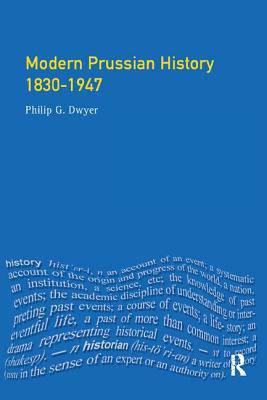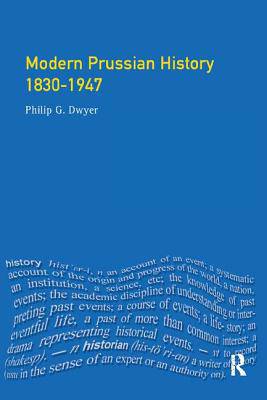
- Afhalen na 1 uur in een winkel met voorraad
- Gratis thuislevering in België vanaf € 30
- Ruim aanbod met 7 miljoen producten
- Afhalen na 1 uur in een winkel met voorraad
- Gratis thuislevering in België vanaf € 30
- Ruim aanbod met 7 miljoen producten
Zoeken
€ 256,95
+ 513 punten
Uitvoering
Omschrijving
The rise of Prussia and subsequent unification of Germany under Prussia was one of the most important events in modern European history.However, the fact that this unification was brought about as a result of the Prussian military has led to many misconceptions about the nature of Prussia, and consequently of Germany, which persist to this day. This collection sets out to correct them. Beginning in 1830, and finishing with the official dissolution of Prussia by the Allies in 1947, the book takes a broad approach: chapters cover the conservatives and the monarchy, industrialisation, the transformation of the rural and urban environment, the labour movement, the tensions between Catholics and Protestants within the state, and the debate about the links between Prussian militarism and the final tragedy of Nazi Germany. By focusing on the social, religious and political tensions that helped define the course of Prussian history, the book also throws light on the development of modern German history.
Specificaties
Betrokkenen
- Auteur(s):
- Uitgeverij:
Inhoud
- Aantal bladzijden:
- 334
- Taal:
- Engels
Eigenschappen
- Productcode (EAN):
- 9781138425316
- Verschijningsdatum:
- 28/06/2017
- Uitvoering:
- Hardcover
- Formaat:
- Genaaid
- Afmetingen:
- 156 mm x 233 mm
- Gewicht:
- 452 g

Alleen bij Standaard Boekhandel
+ 513 punten op je klantenkaart van Standaard Boekhandel
Beoordelingen
We publiceren alleen reviews die voldoen aan de voorwaarden voor reviews. Bekijk onze voorwaarden voor reviews.











